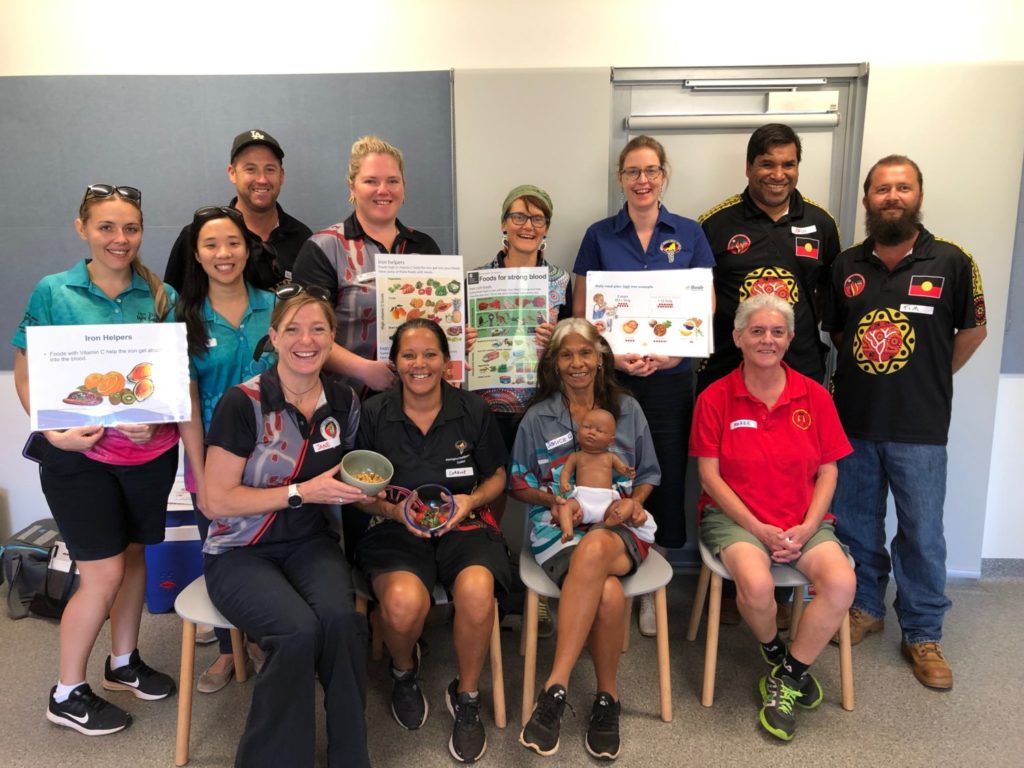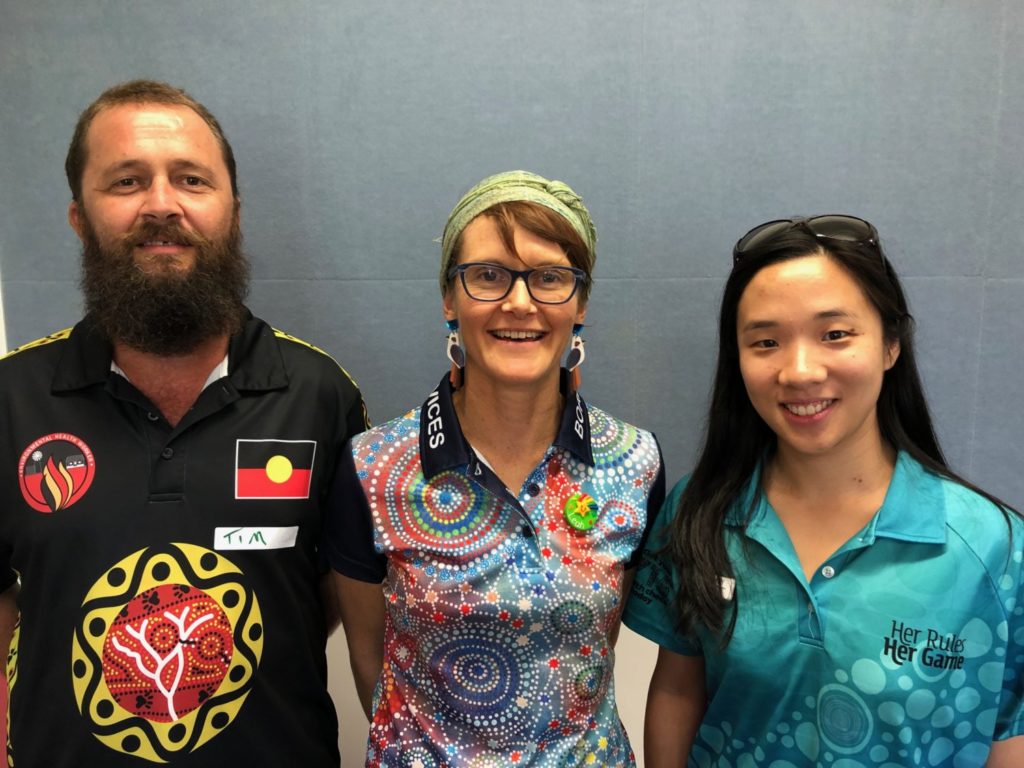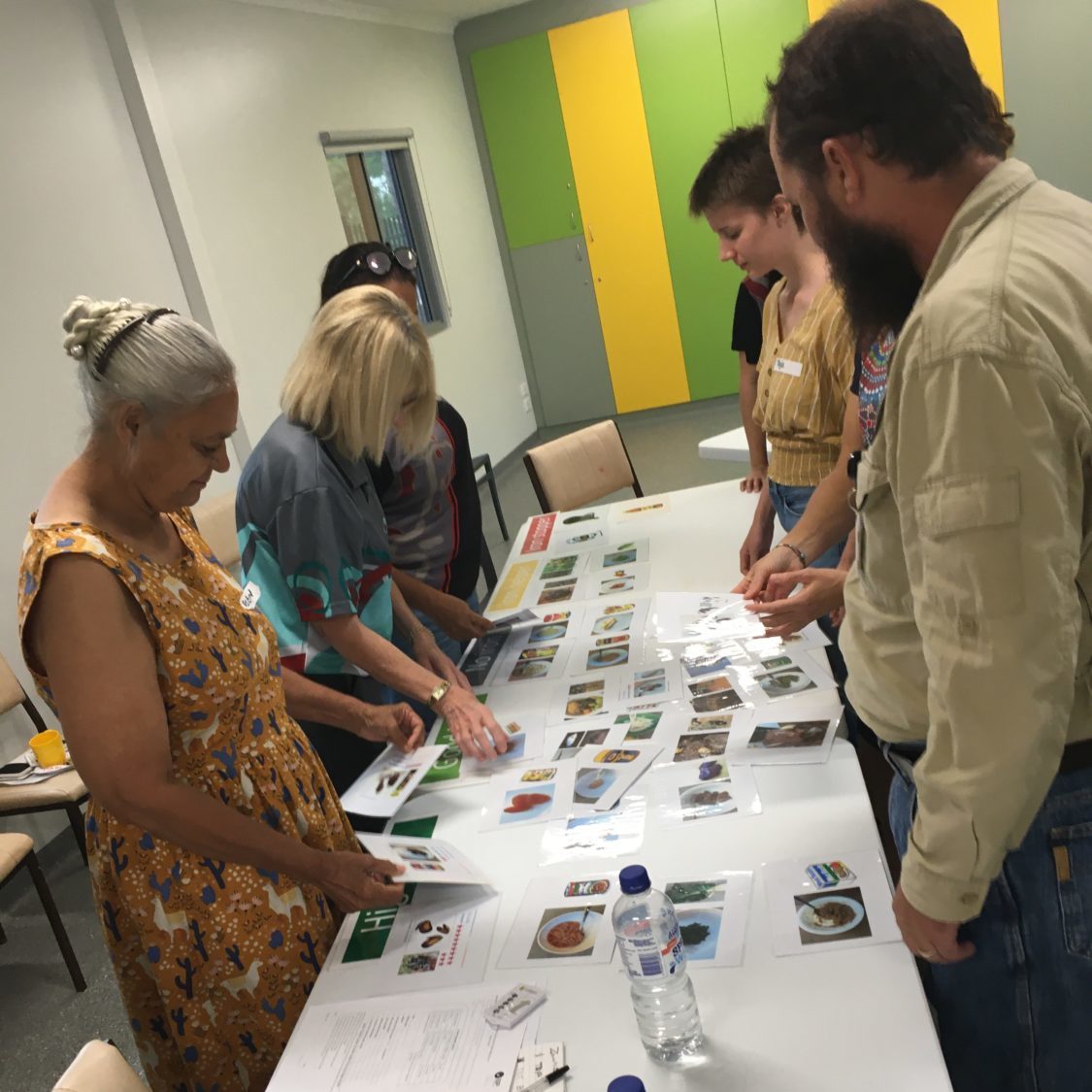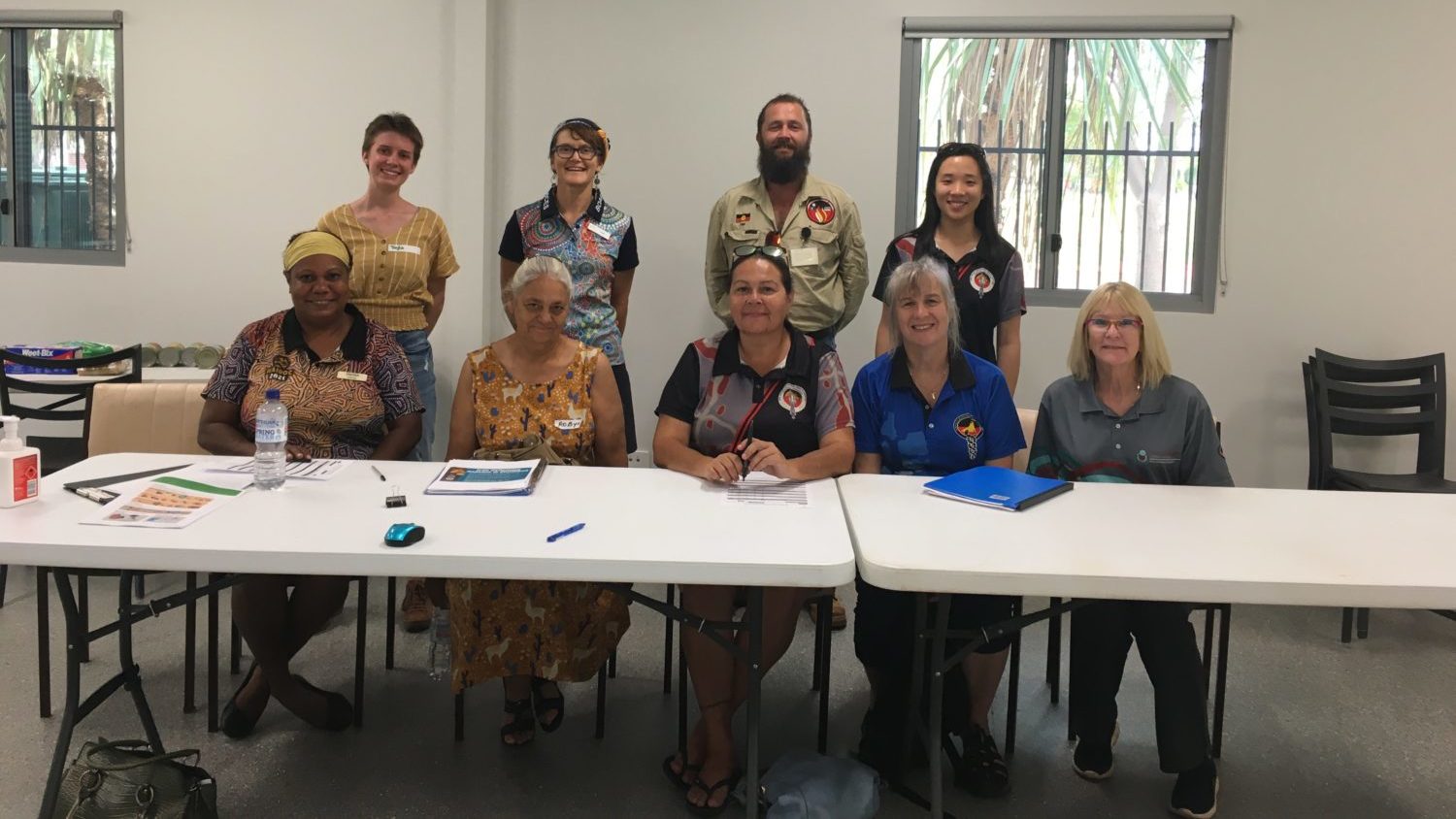Tackling childhood iron deficiency anaemia in Kununurra

Late last year our Paediatric Dietitian, Leah O’Neill, OVAHS GP, Wey Mey Loh and WACHS Kimberley Population Health Unit Senior Environmental Health Field Support Officer, Tim Bond co-delivered two workshops in Kununurra on childhood iron deficiency anaemia (IDA).
The workshops were part of Leah’s Kununurra Iron Deficiency Anaemia Project, which addresses childhood anaemia in Kununurra. Local rates of IDA are as high as 60% in children aged six months to five years. The WHO defines a prevalence of IDA of over 40% as a health problem of severe public health significance.
Other strategies of this project delivered last year included group education sessions for parents and school children, contribution to the update of the KAHPF Clinical Protocols for Anaemia in Children, local media awareness-raising and an education display at a local health service.
Adequate iron intake is essential for optimising early years development, whereby chronic iron deficiency is linked to loss of cognitive potential, poor growth, recurrent infection, reduction in fine-motor skills and even behavioural issues.
The objectives of the workshops were to bring greater awareness of the issue of anaemia in Kununurra and to upskill child health and education professionals on the causes, consequences, medical treatment and nutritional management of IDA.
Over two sessions, the workshop brought together staff from six organisations with program focuses on Aboriginal health, environmental health, early years education, early childhood development, family support, FASD, maternal health and dietetics.
This interdisciplinary approach provided a platform for collaborative, solutions-based discussion around anaemia prevention and support for families with diagnosed children.
Participants of the workshops reported:
- Increase in knowledge about the crucial role of iron for growth and cognitive development in the early years
- Being more likely to discuss anaemia and iron with families and colleagues
- Increase in confidence to support families:
– through role-modelling and supportive early learning environments
– to increase iron intake through food
– to seek medical treatment or to refer on to dietetic services when required
If you would like to learn more about anaemia in children and how to help prevent low iron or to support families manage low iron, please contact Leah O’Neill on 9166 8100 or email reception@boabhealth.com.au



